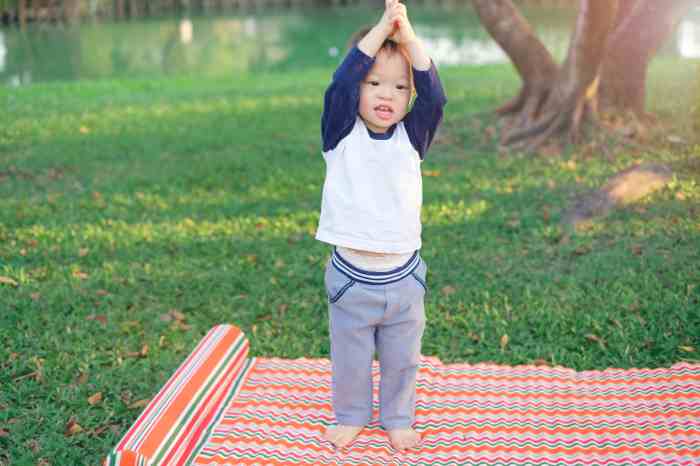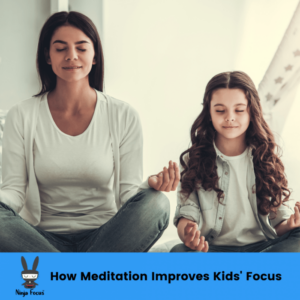15 Little Children’s Meditation Games for Relaxation and Calm offers a variety of engaging activities to promote peace and tranquility in children’s lives. From breathing exercises to sensory games, this comprehensive guide explores the benefits of meditation for young minds.
Explore the world of mindfulness and relaxation with these fun and interactive games designed to help children manage stress and emotions effectively.
Introduction to Children’s Meditation Games
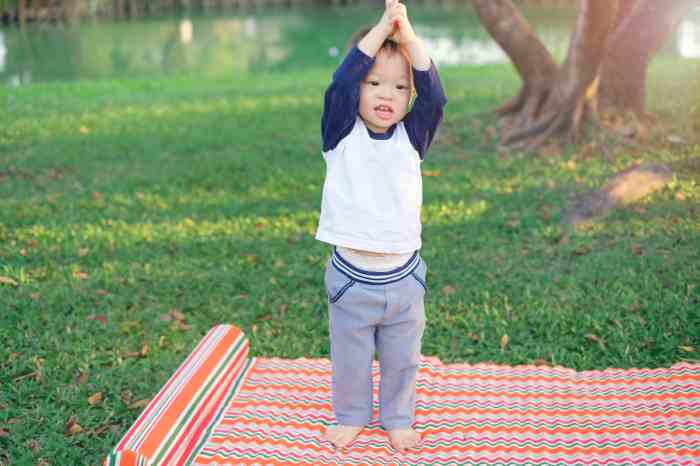
Children today face various stressors and challenges in their daily lives, which can impact their overall well-being. It is essential for children to learn how to relax and stay calm to maintain a healthy mind and body.
Children facing sleep issues can benefit from specific meditation techniques. Learn about these 7 Little Children’s Meditation Techniques to Help with Sleep Issues to improve their bedtime routine and quality of sleep.
One effective way to help children manage stress and emotions is through meditation games. These games are designed to be engaging and fun, making it easier for children to practice mindfulness and relaxation techniques in a playful manner.
Incorporating meditation exercises into children’s daily routine can greatly benefit their emotional health. Check out these 25 Simple Little Children’s Meditation Exercises for Emotional Health to help kids manage their emotions effectively.
The Benefits of Children’s Meditation Games
- Improves focus and concentration
- Enhances self-awareness and emotional regulation
- Reduces anxiety and promotes a sense of calm
- Boosts overall mental well-being and resilience
Breathing Exercises: 15 Little Children’s Meditation Games For Relaxation And Calm
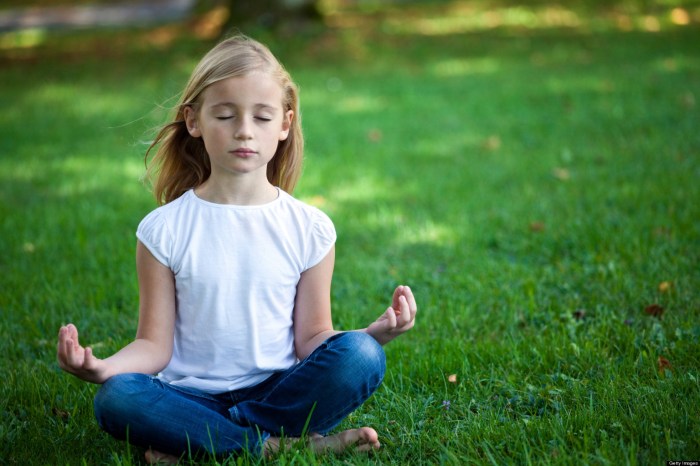
Breathing exercises are simple techniques that can help children relax and calm their minds. These exercises focus on deep breathing, which promotes relaxation and reduces anxiety by helping to activate the body’s relaxation response.
Busy parents can introduce quick meditation practices to their children for moments of calmness. Try out these 15 Quick Little Children’s Meditation Practices for Busy Parents to incorporate mindfulness into daily routines.
Simple Breathing Exercises for Children, 15 Little Children’s Meditation Games for Relaxation and Calm
- One-Minute Belly Breathing: Have the child lie down comfortably and place a small stuffed animal on their belly. Instruct them to take slow, deep breaths, watching the stuffed animal rise and fall with each breath.
- 4-7-8 Breathing: Teach the child to breathe in for 4 counts, hold their breath for 7 counts, and exhale for 8 counts. This rhythmic breathing pattern can help calm the mind.
- Bubble Breaths: Give the child a bottle of bubbles and have them take a deep breath in, then blow out slowly to create bubbles. This exercise can make deep breathing fun and engaging.
Benefits of Deep Breathing for Children
- Deep breathing helps activate the parasympathetic nervous system, which is responsible for the body’s relaxation response.
- It can lower heart rate and blood pressure, reduce stress hormones, and promote a sense of calm and well-being.
- Regular practice of deep breathing techniques can improve focus, concentration, and emotional regulation in children.
Impact of Teaching Children Breathing Techniques
- By teaching children breathing techniques for mindfulness, we empower them with tools to manage stress, anxiety, and difficult emotions effectively.
- Children who practice deep breathing regularly are more likely to develop healthy coping mechanisms and emotional resilience.
- Breathing exercises can be used in various settings, such as before tests or bedtime, to help children relax and center themselves.
Visualization Games
Visualization games are a fun and effective way to help children tap into their creativity, relax, and focus. By engaging their imagination, these games can also provide a sense of calm and peacefulness. Here are some examples of visualization games that you can introduce to children:
Example 1: The Magic Garden
- Have the children close their eyes and imagine themselves in a beautiful garden filled with colorful flowers, trees, and butterflies.
- Encourage them to explore the garden using all their senses – feeling the soft grass under their feet, smelling the fragrant flowers, hearing the birds chirping.
- Guide them to visualize a peaceful spot in the garden where they can sit and relax, taking deep breaths and letting go of any worries or stress.
Example 2: Journey to Space
- Invite the children to picture themselves floating in space, surrounded by stars, planets, and galaxies.
- Encourage them to imagine the vastness of space and the feeling of weightlessness as they float gently among the stars.
- Guide them to focus on their breathing and imagine each breath carrying them deeper into space, away from any distractions or concerns.
Visualization can help children focus and unwind by allowing them to escape from the present moment and enter a world of their own creation. It helps them develop their imagination, concentration, and relaxation skills. To guide children through visualization exercises effectively, consider the following tips:
- Create a calm and quiet environment free from distractions.
- Use gentle and soothing language to describe the scenes and encourage relaxation.
- Allow plenty of time for children to fully immerse themselves in the visualization process.
- Encourage them to share their experiences and feelings after the exercise to deepen their understanding and connection to the practice.
Visualization games can be a valuable tool in helping children find peace and tranquility in their busy lives. By incorporating these games into their routine, you can support their emotional well-being and promote a sense of mindfulness and relaxation.
Enhancing focus in children can be fun with creative meditation games. Explore these 10 Creative Little Children’s Meditation Games to Enhance Focus to help kids improve their concentration skills.
Mindfulness Activities
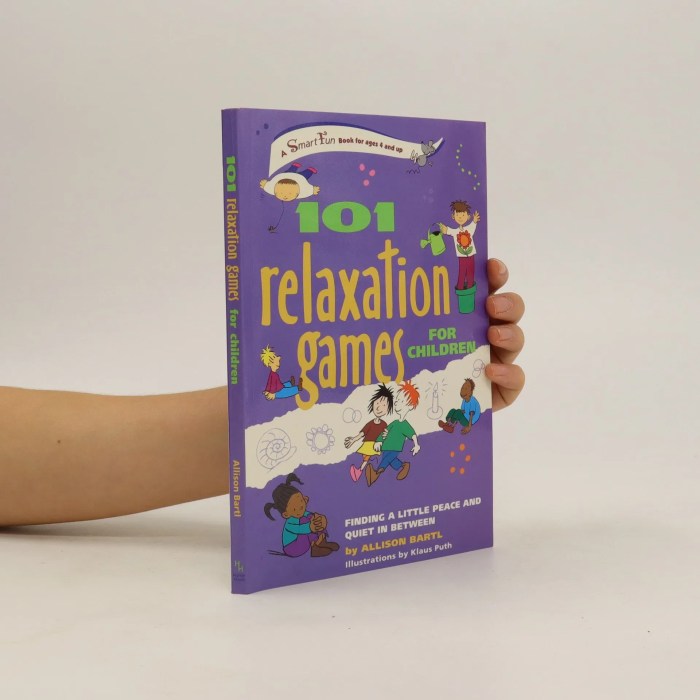
Mindfulness is the practice of being present in the moment, paying attention to thoughts and feelings without judgment. It helps children develop self-awareness, focus, and emotional regulation.
Stress-free holidays for children are possible with the practice of meditation routines. Discover these 7 Little Children’s Meditation Routines for Stress-Free Holidays to help kids relax and enjoy the festive season.
Deep Breathing Exercise
- Have the child sit comfortably and close their eyes.
- Ask them to take a deep breath in through their nose, hold for a few seconds, and then exhale slowly through their mouth.
- Repeat this process several times, focusing on the sensation of the breath entering and leaving their body.
Body Scan Meditation
- Guide the child to focus on each part of their body, starting from their toes and moving upwards.
- Encourage them to notice any tension or discomfort and breathe into those areas to release the stress.
- This activity helps children connect with their bodies and promotes relaxation.
Sensory Awareness Game
- Encourage the child to focus on each of their senses – sight, sound, touch, taste, and smell.
- Ask them to describe what they see, hear, feel, taste, and smell in their surroundings without judgment.
- This activity helps children become more aware of their environment and their reactions to it.
Sensory Games
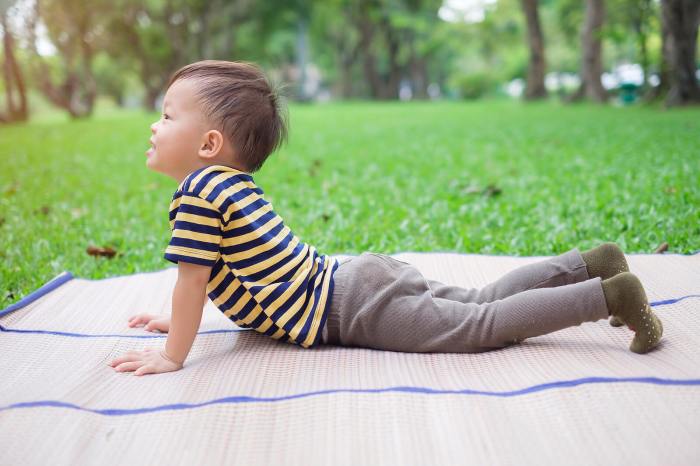
Engaging children’s senses through sensory games is a fun and effective way to promote relaxation and mindfulness. These activities help children focus on the present moment and create a calming environment for them to unwind.
Exploring Nature
- Take children on a nature walk and encourage them to feel different textures like smooth rocks, rough tree bark, or soft leaves.
- Listen to the sounds of nature such as birds chirping, leaves rustling, or water flowing to enhance auditory senses.
- Engage in activities like cloud gazing or star watching to stimulate visual senses and promote relaxation.
Sensory Bins and Bottles
- Create sensory bins filled with materials like rice, beans, or sand for children to touch and explore with their hands.
- Make sensory bottles using glitter, water, and oil to create a soothing visual effect that can help children calm their minds.
- Add scents like lavender or citrus to sensory activities to engage the sense of smell and promote relaxation.
Mindful Eating
- Encourage children to mindfully eat a piece of fruit, focusing on the taste, texture, and sensation in their mouths.
- Engage in activities like a tea party where children can sip tea slowly and savor the flavors to promote relaxation.
- Use blindfolded taste tests to help children become more aware of their sense of taste and practice mindful eating.
Movement-Based Games
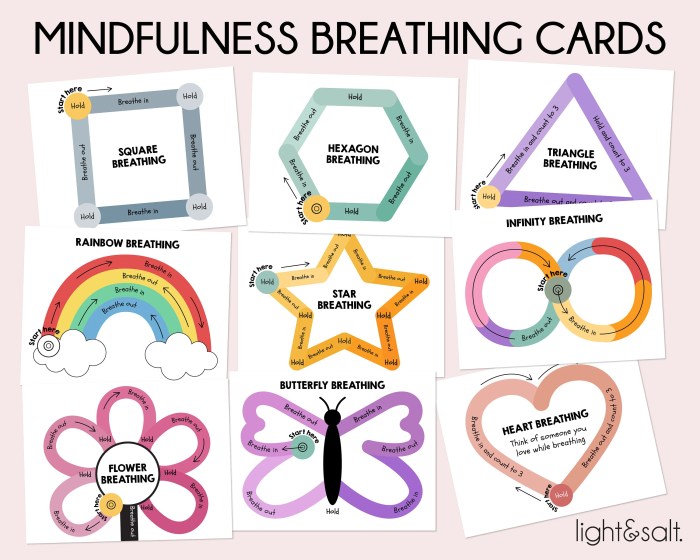
Engaging in movement-based meditation games can be a fun and effective way for children to relax and calm their minds. These activities combine physical movement with mindfulness techniques to help kids release tension and stress.
Examples of Movement-Based Games
- Yoga Poses: Encourage children to try simple yoga poses like tree pose, cat-cow stretch, or child’s pose to promote relaxation and focus.
- Dance Party: Put on some music and let children dance freely, allowing them to express themselves through movement and music.
- Nature Walk: Take children on a mindful nature walk, encouraging them to observe their surroundings and connect with nature through movement.
Benefits of Physical Activity for Children
Physical activity is essential for children’s overall health and well-being. When it comes to meditation, incorporating movement can help children:
- Release pent-up energy and tension.
- Improve focus and concentration.
- Promote a sense of calmness and relaxation.
Importance of Movement in Meditation Practices
Integrating movement into meditation practices for children is crucial as it allows them to engage both their bodies and minds. Movement-based games can help children develop a deeper understanding of mindfulness while keeping them active and engaged.
Immerse your children in a world of relaxation and calm with these 15 meditation games that encourage mindfulness and emotional regulation. Let these activities be a cornerstone of their daily routines for a peaceful and balanced life.
